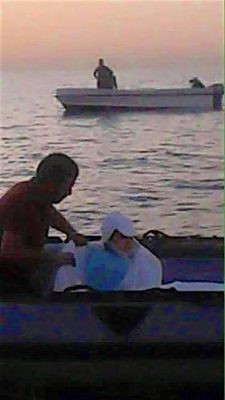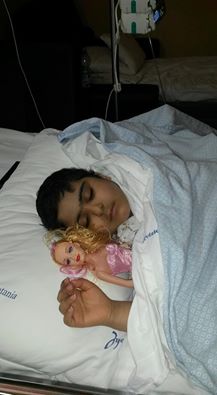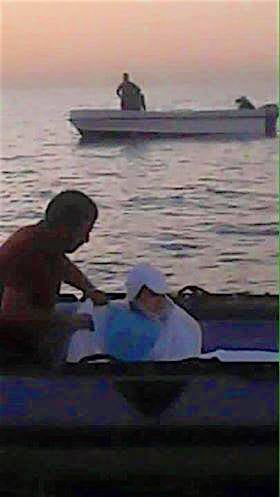By Moutaz Ali.

Tripoli, 5 July 2016:
Not all those setting out on the perilous journey across the Mediterranean from Libya are sub-Saharan Africans or refugees from Syria or elsewhere. Increasingly among them are Tunisians and Libyans for whom all safer routes to Europe are blocked by a clampdown on visas. Just last week, some 14 Tunisians from the border town of Ben Guerdane were drowned when the boat they had taken from Sabratha capsised.
Among the growing number of Libyans prepared to make the perilous journey was Abdulhakim Shaibi. He too sailed from Sabratha, desperate to get his seriously-ill six-year old daughter Sadija to Europe. The treatment she needs is unavailable to her in Libya. Suffering from a rare blood disorder, she requires a bone-marrow transplant.
“We spent two years in Turkey seeking medical treatment and there were three operations on which I spent all my savings. But they all failed,” Abdulhakim told the Libya Herald.
He was advised by doctors that Germany his daughter needed to go to Germany where treatment for her condition was available.
“I applied several times for a Schengen visa but all my applications were refused. I think they were afraid that I wouldn’t be able to afford the huge costs of such treatment,” he said.
Desperate to save Sadija, he decided that the only option was to sail to Italy. He knew it was risky but says he had no alternative.
“I thought that a quick death by drowning might be less painful than seeing my daughter dying slowly in front of my eyes,” he explained.
Having discussed the matter with some of his fishermen friends, Abdulhakim decided a week ago to sail to Europe from Sabratha, his home town. He did so alone with Sajida in a tiny rubber boat although accompanied by two of the friends in their own boats. They stayed with him for more 33 hours until they were discovered by a Italian coastguard vessel which took them to Sicily. Once the ship was spotted, the two friends turned round and sailed back to Sabratha.
Sadija is now in hospital in Sicily and according to her father is being well looked after. However, he has denied rumours that his daughter was about to be operated on.
“It still too early for this because the operation requires certain complicated procedures, not to mention finding a donor,” he said.
To reassure his family and friends, Abdulhakim took a video of Sajida three days ago in the hospital. Telling her that everybody cared about her, she replied she just wanted to go home as soon as possible.
While they were in their boat in the vast empty expanse of the sea, Abdulhakim and Sajida were also videoed by his two friends. Sajida is seen wearing a fisherman plastic white overall to protect her and being looked after by her father.
The video has been circulated widely on social media and prompted many artists to redraw the scene from different angles.
Libyans have not, until now, dared take the risk of crossing the Mediterranean in an open boat. Nor did they need to. But as the Libya crisis continues – and shows no sign of ending – that is changing. Libyans too are now joining the ranks of boat people desperate to get to Europe, no matter how perilous the journey.









